What are the signs of a bad mattress?
While difficulties like sleep disorders can lead to poor sleep, they’re not always the issue.
Your mattress may be the problem. 😬
Luckily, the signs are there if you know what to look for!

So, what are some of the most common symptoms of sleeping on a bad mattress? 👇
Trouble falling asleep
An uncomfortable mattress can make it hard to fall asleep. 😞
So, if you're lying awake night after night, despite feeling utterly exhausted, your mattress may be worn out or just not the right fit for your sleep needs.
Waking up tired
Consistently waking up feeling tired is one of the hardest-to-ignore symptoms of sleeping on a bad mattress.
This tiredness, despite a full night's sleep, suggests your mattress is not providing the comfort or support you need. 👎
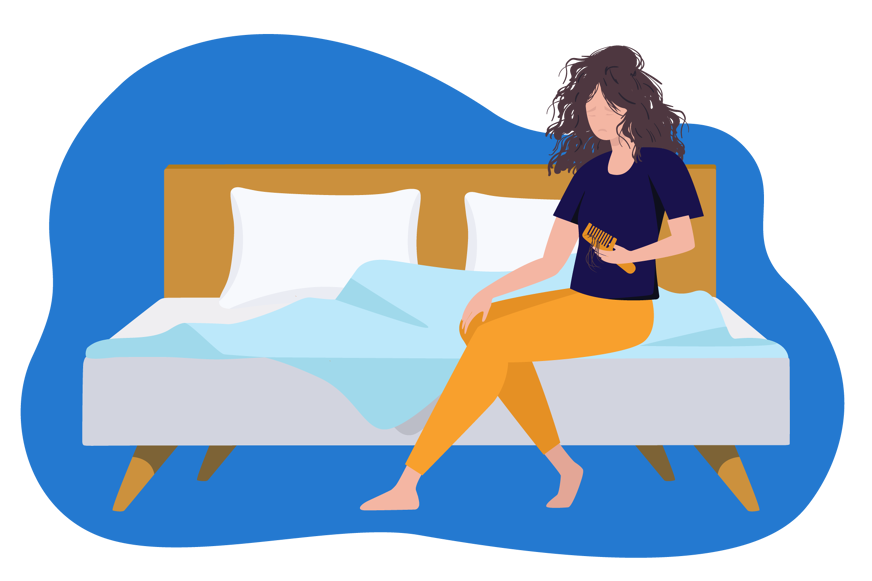
Bad mattresses often lead to discomfort, resulting in frequent tossing and turning or nighttime disturbances.
And studies link more nocturnal movements to poorer sleep quality [1].
You may also feel more tired if your mattress leaves you feeling too hot. 🥵
Overheating has been linked to increased wakefulness [2] and decreased time spent asleep.
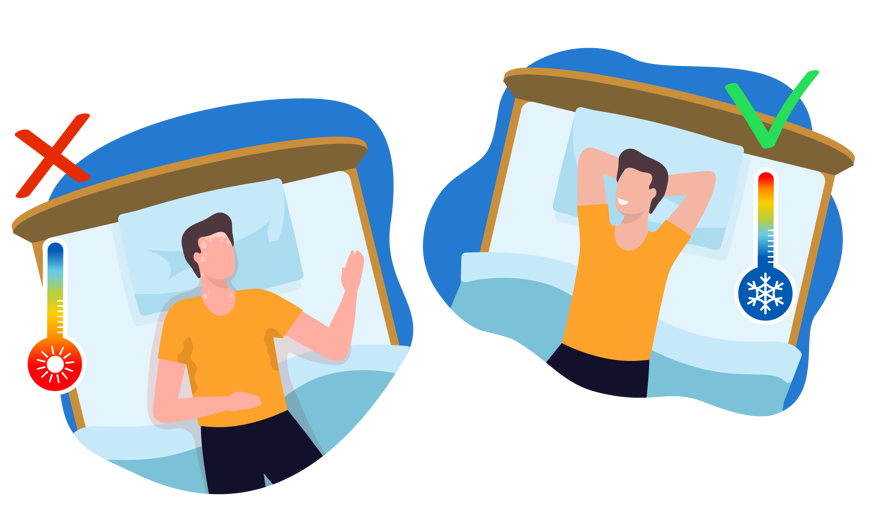
While not always a symptom of a bad mattress, feeling consistently too hot may mean it’s not a good fit for you.
Hot sleepers are better suited to pocket spring mattresses, which allow for more airflow, or cooling mattresses, which use a variety of tech for a cooler-to-the-touch feel. 💤
Aches and pains
A bad mattress can also lead to physical aches, pains, and muscle tightness. 💥
Most commonly, a bad mattress will cause pain in the back, neck, hips, and shoulders.
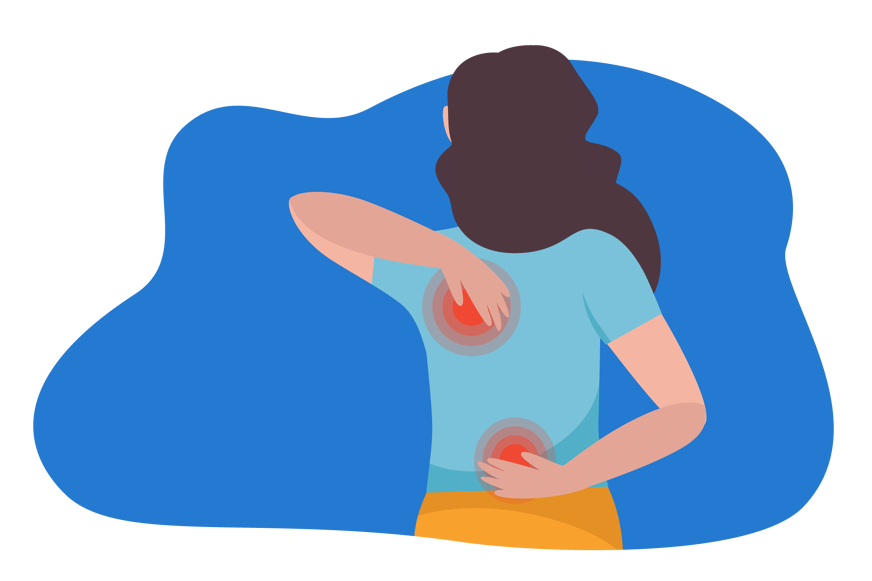
The wrong mattress will not provide the support you need, leading to a curve or bend in your spine as you sleep.
On the other hand, a good mattress should support optimal spinal alignment. 💃
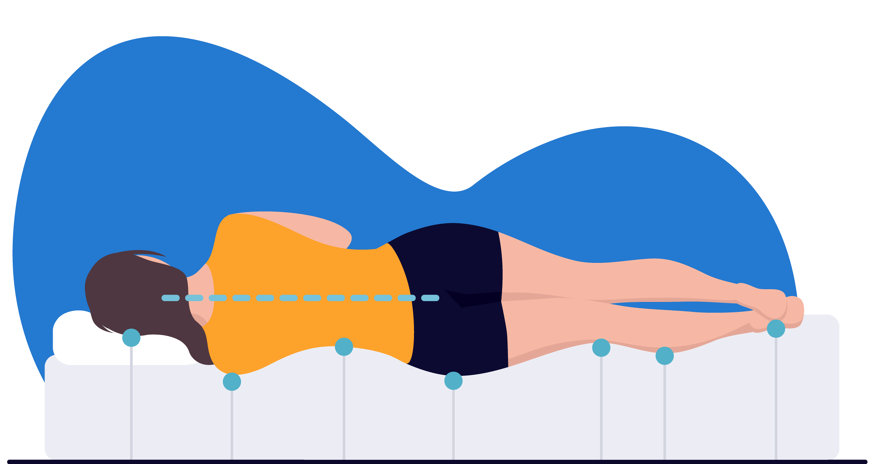
If you notice your pain, particularly back or lower back pain, is worse in the morning, this is likely because of your mattress.
Worsened allergies
Not many people know this, but worsened allergies can be a bad mattress sign.
Mattresses can harbour common irritants like dust mites [3], pollen, mould, mildew, and bacteria, especially if you don’t use a waterproof mattress protector.
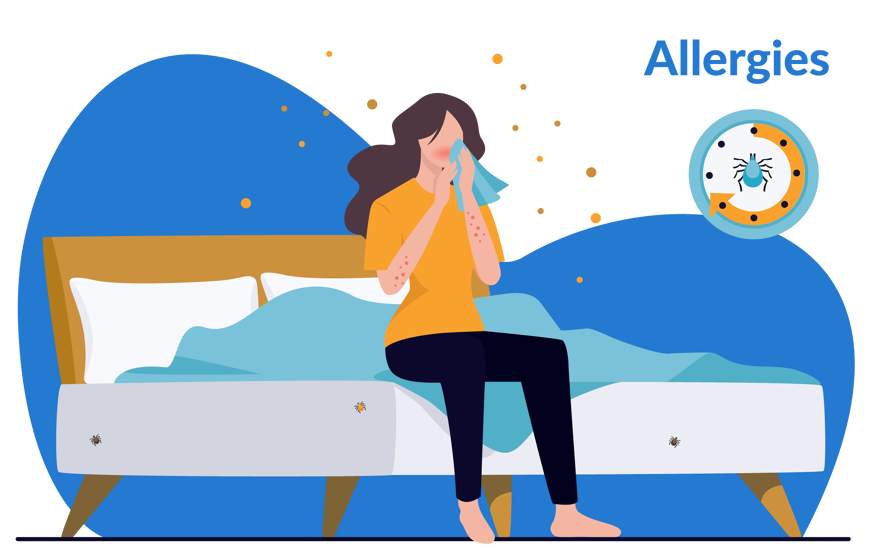
Exposure to these allergens may exacerbate your allergies or even affect your breathing. 🤧
In fact, being consistently around these allergens can potentially cause or aggravate asthma [4] conditions.
Mattress looks or feels uneven
One of the most obvious symptoms of a bad mattress is if it looks or feels uneven.
Old or worn-out mattresses often start to sag, dip, or develop lumps, and you may be able to see this (with or without sheets) or feel it when you lie down.
If you notice any lumps or dips, it’s probably time to invest in a new mattress. 💻
Mattress squeaking or creaking
While many of us grew up with squeaky mattresses, your mattress shouldn't disrupt a quiet night's sleep. 🙅
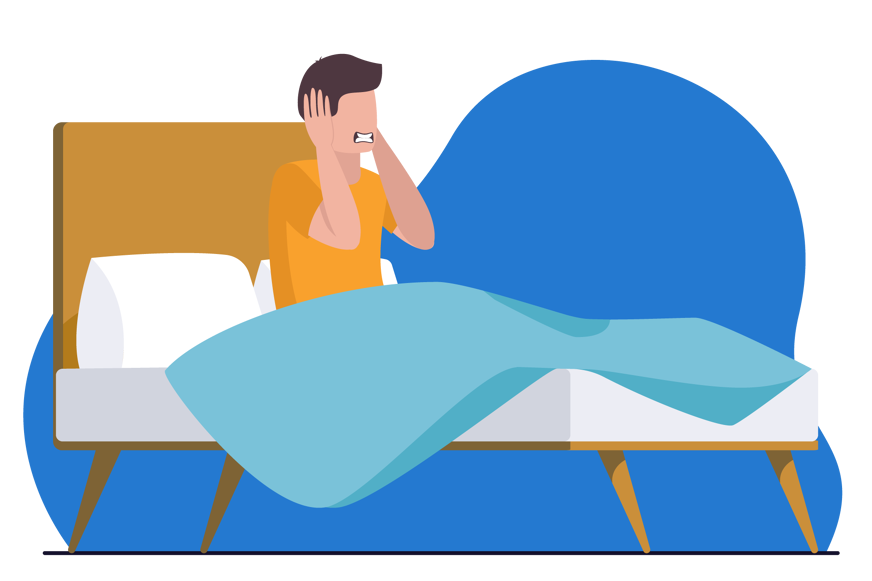
Creaks or squeaks often indicate wear and tear, especially in spring-based mattresses.
This noise typically signifies the springs have deteriorated, and, unfortunately, there's no simple fix.
Though if your mattress is relatively new or not spring-based, it may be worth taking a closer look at whether a bad bed frame is the culprit. 🛏️
If your mattress makes more noise than you, it’s likely time for a replacement.
Mattress age
How old is your mattress? 🤔
Some of us may struggle to answer this, but it’s an important consideration.
Most mattresses have a lifespan of 7 to 10 years.
If you have a cheaper, lower-quality mattress, it may only last around 5 years.

By the same token, people with very high-quality beds, such as natural latex mattresses or high-density memory foam mattresses, may find that theirs lasts longer. 🔼
As mattresses age, they become less supportive and comfortable.
How can sleeping on a bad mattress affect your health?
The wrong mattress doesn't just rob you of a good night's sleep; it can significantly impact your health.
From promoting back pain and body aches due to lack of support to aggravating allergies and asthma and even affecting skin health, the consequences are far-reaching.
Moreover, the resultant poor sleep can contribute to depression and other serious health conditions [5], including obesity, diabetes, and cardiovascular diseases.
How to fix a bad mattress
We have some bad news - You can’t fix a bad mattress. 😥
If your mattress is lumpy, sagging, squeaking, or leaving you sleeping poorly, then the best course of action is to replace your mattress.
However, we understand that’s not a feasible, immediate course of action for everyone.
Whether you’re short on cash, in the middle of a move, or something else, there are a few things you can do to improve bad mattress signs.
Let’s take a look at the best temporary fixes to help you feel less uncomfortable in bed. 👇
Turning or flipping your mattress
Flipping or turning your mattress isn't a permanent fix.
However, it can be a practical short-term solution to prevent deepening dents or worsening lumps by evening out the pressure across its surface. ✅
This approach can offer some relief and may help extend the life of a slightly lumpy mattress.
Just bear in mind that some mattresses cannot be flipped; some can only be rotated.
Adjust the temperature in your room
While not directly related to your mattress, adjusting the temperature in your room can help you sleep better.
For most people, between 15 and 20°C is the optimal room temperature for sleep. 🌡️

Unfortunately, a bad mattress can cause some people to feel too hot.
Consider adjusting your thermostat or swapping out your duvet for a lighter one to help you drift off feeling cool and comfortable.
Try adding a mattress topper
Let’s answer the most common question: Can a mattress topper fix a bad mattress?
No, a mattress topper can’t fix a bad mattress.
However, a topper can improve the feel of your mattress. 🤗
Adding a mattress topper can help even out sagging and lumps, making bad beds more comfortable.
They also provide useful padding for people who can feel the springs in the mattress.

Using a topper could help extend the life of your mattress by up to 1 year.
Just remember that a mattress topper is not a permanent solution, so you’ll still need to purchase a new mattress as soon as possible.
Using a mattress protector
A mattress protector is a great way to protect your mattress against dust mites and other allergens.
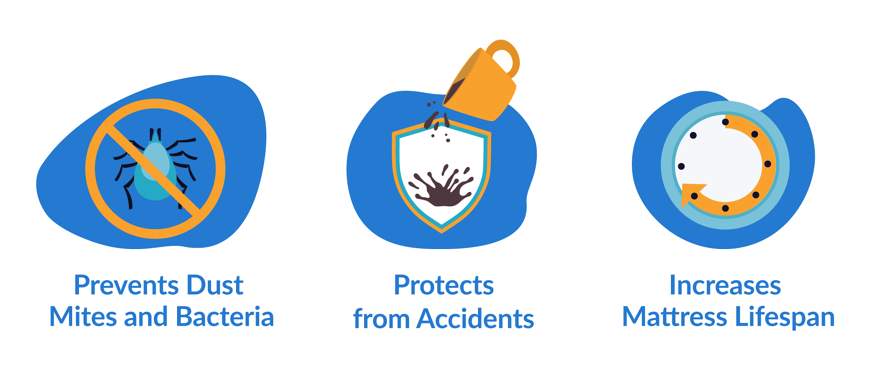
It can help prevent your allergies from worsening and acts as a barrier between you and your mattress (and the allergens that call it home). 🤧
However, a protector will not fix lumps, dips, or squeaking.
Use good sleep accessories
A good pillow [6], duvet, and bedding can make your sleep set up as cosy as possible. 💗

Depending on your preferences, you may sleep best on silk bedding or prefer high-quality, soft cotton like the bedding from DreamCloud.
While sleep accessories won’t fix a bad mattress, they can make you more comfortable and be reused when you buy a new mattress.
Our favourite toppers, duvets, and pillows:
Is it time to replace your mattress?
Knowing when to replace a mattress will help ensure you consistently get a great night’s sleep.
Most mattresses have a lifespan of 7 to 10 years, though cheap, low-quality mattresses may last as little as 5 years. ⭐
But more than lifespan, you need to look for the signs of a bad mattress to know when to change a mattress.
You should consider getting a new mattress if you’re experiencing some of the mattress problems we mentioned, especially if yours is over 7 years old.







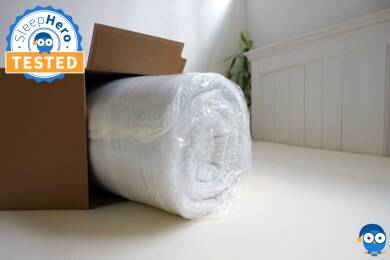

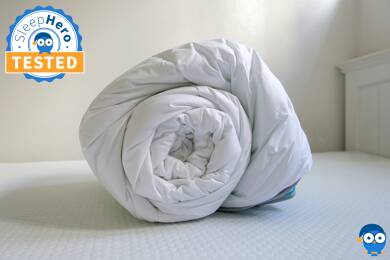

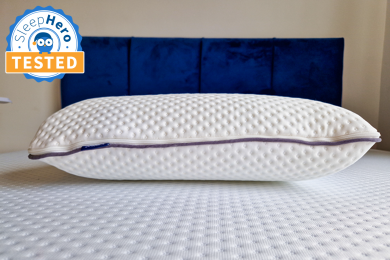

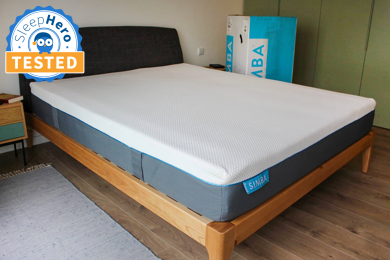




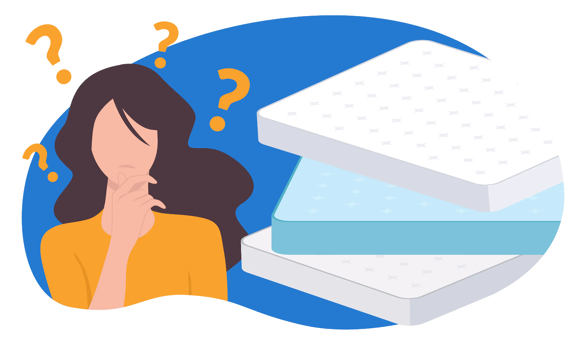

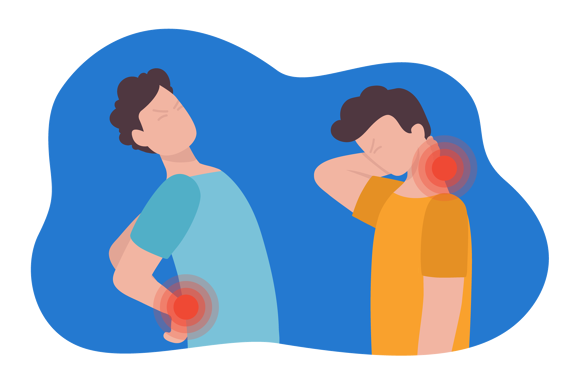


Alternatively, message us directly via the Contact Us page.